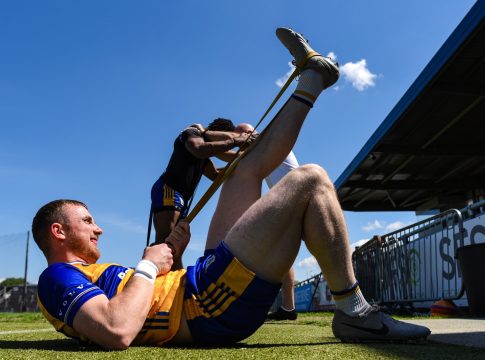The Reality of Recovery: Navigating the Myths of Gaelic Football
Recovery tools may seem like the Holy Grail for athletes, but the truth is far less glamorous. The world of Gaelic football, brimming with physical challenges, has fallen victim to a prominent misconception: recovery isn’t just a quick fix. It’s a comprehensive lifestyle choice demanding attention beyond the training field.
Recovery Doesn’t Start and End at the Gym
It’s common for coaches to ask, "Have you done your recovery?" But in reality, this question often misses the mark. True recovery goes beyond a post-training foam roller session or a swift dip in an ice bath. It encompasses every aspect of an athlete’s daily life—from sleep patterns to nutrition, stress management, and personal downtime.
The "Tick-the-Box" Mentality
It’s easy to check off recovery tasks, but without addressing lifestyle factors, real recovery remains elusive. Athletes who excel in their recovery routines but neglect proper meal timing, hydration, and mental breaks are not doing justice to their own potential.
The Big Three: Sleep, Nutrition, and Hydration
Leading experts stress that sleep, nutrition, and hydration form the cornerstone of effective recovery. These elements are the absolute essentials. If these basics aren’t prioritized, even the most sophisticated recovery gadgets won’t salvage your performance.
- Sleep: Regarded as a non-negotiable element, quality sleep rejuvenates both body and mind.
- Nutrition: Proper fueling can dramatically affect athletic performance. Skipping meals in favor of fanciful gadgets won’t yield better results.
- Hydration: Staying adequately hydrated is crucial, as even mild dehydration can impair performance.
Mental Recovery: The Overlooked Component
When pursuing recovery, it’s essential not to overlook the mental aspect. Athletes often juggle multiple responsibilities—jobs, studies, family—which can escalate stress levels. Incorporating hobbies, socializing, and leisure activities into recovery practices—collectively referred to as psycho-social recovery—is just as vital as physical recovery techniques. Different from mindless scrolling on social media, meaningful downtime like reading, relaxing, or even a simple walk outdoors can revitalize your mental state.
One Size Doesn’t Fit All
Another prevailing myth is the one-size-fits-all mentality surrounding recovery. While some athletes may swear by cold plunges or massages, others might find solace in a good night’s sleep or a hearty meal. Finding a personalized recovery strategy that resonates with the individual is crucial. According to research, enjoyment of the recovery process correlates strongly with its effectiveness.
Flexibility is Key
Adapt your recovery strategies to your training schedule. For instance, if you’ve had a late-night practice, don’t force an early morning recovery routine. Let your body recover where it counts most—resting at home.
Conclusion: Keep It Simple, Stick to the Essentials
In a world brimming with trendy recovery gadgets and flashy tools, it’s easy to lose sight of what truly matters. Prioritize sleep, maintain a balanced diet, stay hydrated, and make time for mental well-being. The key to peak performance in Gaelic football lies not merely in the fleeting extra minutes post-training but in the daily decisions you make. Focus on long-term habits over quick fixes, and your body will be grateful as the championship season approaches.
In the intricate landscape of recovery, simplicity reigns supreme. Stick to the basics, and the results will follow.

Writes about personal finance, side hustles, gadgets, and tech innovation.
Bio: Priya specializes in making complex financial and tech topics easy to digest, with experience in fintech and consumer reviews.

